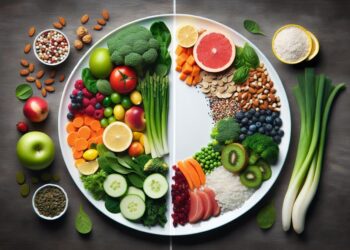Are you looking to take your fitness gains to the next level? Intermittent fasting and exercise may just be the winning combination you've been searching for. By harnessing the power of both intermittent fasting and regular exercise, you can optimize your fitness gains and achieve your goals more efficiently. But how exactly does intermittent fasting impact exercise performance? And what are the best practices for combining the two? In this discussion, we will explore the benefits of intermittent fasting, the impact of exercise on fitness, and how to maximize your gains by incorporating both into your routine. Get ready to unlock the secrets to maximizing your fitness potential.
Key Takeaways
- Intermittent fasting and exercise can lead to weight loss, increased muscle growth, and improved overall health and well-being.
- Fasting can boost exercise performance by increasing human growth hormone levels and enhancing fat burning potential.
- Timing workouts towards the end of the fasting window and considering pre-workout fueling can optimize results.
- Balancing intermittent fasting with proper nutrition, hydration, and a well-rounded workout plan is essential for maximizing fitness gains.
The Benefits of Intermittent Fasting
Intermittent fasting offers a range of benefits that can positively impact your overall health and well-being. One of the most well-known benefits is weight loss. Intermittent fasting can help you shed those extra pounds by restricting your eating window, which ultimately reduces your calorie intake. By giving your body a break from constant digestion, intermittent fasting allows your body to tap into its fat stores for energy. This promotes fat burning and can lead to significant weight loss over time.
In addition to weight loss, intermittent fasting also triggers hormonal changes in the body. When you fast, your insulin levels drop and your body starts producing more human growth hormone (HGH). This increase in HGH can have several positive effects on your body composition and overall health. It can promote muscle growth, increase fat burning, and improve your metabolism.
Furthermore, intermittent fasting has been shown to improve insulin sensitivity, reduce inflammation, and lower blood pressure. It can also enhance brain health by increasing the production of brain-derived neurotrophic factor (BDNF), a protein that supports the growth of new neurons and improves cognitive function.
The Impact of Exercise on Fitness
Regular exercise plays a crucial role in improving overall fitness levels and promoting optimal health. When it comes to fitness, exercise is like the engine that drives progress. Here are a few key reasons why exercise is essential for maximizing your fitness gains:
- Muscle growth: Engaging in resistance training, such as weightlifting, stimulates muscle growth and increases muscle strength. This not only enhances your physical performance but also helps to boost your metabolism.
- Cardiovascular health: Regular aerobic exercise, like running or cycling, improves heart health by strengthening the heart muscle, lowering blood pressure, and increasing the efficiency of oxygen delivery to the body's tissues.
- Bone density: Weight-bearing exercises, such as walking or jumping, help to increase bone density and reduce the risk of osteoporosis, a condition characterized by weak and brittle bones.
- Mental well-being: Exercise has been shown to reduce symptoms of depression and anxiety, improve mood, and enhance cognitive function. It also promotes better sleep, which is crucial for overall health and recovery.
While exercise is vital, it's important to remember that rest and proper nutrition are equally essential for maximizing fitness gains. Rest allows your body to recover and repair itself, while proper nutrition provides the fuel and nutrients needed for optimal performance and muscle growth. So, make sure to incorporate rest days into your exercise routine and fuel your body with a balanced diet to optimize your fitness journey.
How Intermittent Fasting Boosts Exercise Performance

To optimize your exercise performance, incorporating intermittent fasting into your routine can be beneficial. Intermittent fasting has been shown to have positive effects on muscle growth and can enhance your overall exercise performance. By strategically timing your workouts during fasting periods, you can maximize the benefits of both fasting and exercise.
One potential effect of intermittent fasting on muscle growth is an increase in human growth hormone (HGH) levels. HGH plays a crucial role in muscle development and repair. Research suggests that fasting can lead to an increase in HGH production, which can promote muscle growth and recovery.
Additionally, exercising in a fasted state may enhance your body's ability to burn fat for fuel. When you exercise on an empty stomach, your body has depleted its glycogen stores and is more likely to rely on stored fat for energy. This can aid in weight loss and improve body composition.
To help you understand the optimal timing for exercise during fasting, here is a table outlining various fasting protocols and their recommended exercise timings:
| Fasting Protocol | Optimal Exercise Timing |
|---|---|
| 16:8 | During the fasting period, towards the end |
| 20:4 | Towards the end of the fasting period |
| 5:2 | On non-fasting days |
| Alternate day fasting | On fasting days, towards the end of the fasting period |
Best Practices for Combining Intermittent Fasting and Exercise
Incorporating intermittent fasting into your exercise routine requires careful consideration of best practices to ensure optimal results. To help you navigate this combination, here are some key considerations:
- Optimal timing: When it comes to intermittent fasting and exercise, timing is crucial. It is generally recommended to schedule your workouts towards the end of your fasting window. This allows you to take advantage of the increased fat burning potential during fasted workouts.
- Pre-workout fueling: While exercising in a fasted state can have some benefits, it may not be suitable for everyone. If you find yourself lacking energy or experiencing dizziness during your workouts, consider having a small meal or snack containing protein and carbohydrates before exercising. This can provide the necessary fuel to power through your workout.
- Hydration: Staying hydrated is always important, but it becomes even more crucial when combining intermittent fasting and exercise. Make sure to drink plenty of water throughout the day, especially before and after your workout. This helps to maintain proper hydration levels and supports optimal performance.
- Post-workout nutrition: After completing your workout, it is essential to refuel your body. Ensure you consume a balanced meal containing protein and carbohydrates within your eating window. This aids in muscle recovery and replenishes glycogen stores.
Maximizing Fitness Gains: Tips and Strategies

To optimize your fitness gains, implementing effective strategies and adhering to evidence-based guidelines is key. By following these strategies for maximizing results and optimizing workout performance, you can make the most out of your fitness routine.
Firstly, it's important to have a well-rounded workout plan that includes a combination of cardiovascular exercise, strength training, and flexibility exercises. This will help you target different muscle groups, improve your endurance, and enhance your overall fitness level.
In addition, varying your workouts is essential for maximizing fitness gains. Mixing up your routine by trying different exercises, incorporating interval training, or participating in group fitness classes can help prevent plateaus and keep you motivated.
Another strategy for maximizing results is to gradually increase the intensity of your workouts over time. This can be achieved by increasing the weight lifted, the duration of your cardio sessions, or the intensity of your intervals. However, it's important to do this gradually to avoid injury and allow your body to adapt.
Lastly, paying attention to your nutrition and hydration is crucial for optimizing workout performance. Fueling your body with a balanced diet that includes carbohydrates, protein, and healthy fats will provide the energy needed for intense workouts. Staying hydrated before, during, and after exercise will also help maintain optimal performance.
Frequently Asked Questions
Can Intermittent Fasting Help With Weight Loss Even Without Exercise?
Intermittent fasting can aid in weight loss without exercise. It can boost metabolism and help control appetite, leading to a calorie deficit. However, combining intermittent fasting with exercise can maximize fitness gains and overall health benefits.
Does Intermittent Fasting Affect Muscle Gain?
Intermittent fasting can affect muscle gain by potentially increasing protein synthesis during the fasting period. However, it's crucial to combine fasting with regular resistance training and adequate protein intake to optimize muscle growth.
Is It Safe to Exercise While Fasting?
Exercising while fasting can have potential risks, such as decreased performance and increased muscle breakdown. To fuel your workouts during fasting, it's best to consume a combination of protein and carbohydrates before or after your exercise session.
How Long Should I Wait After Exercising to Break My Fast?
After exercising, you should wait for the optimal timing to break your fast. This allows your body to fully benefit from post workout nutrition, maximizing your fitness gains. Remember, timing is crucial for achieving your fitness goals.
Are There Any Specific Exercises That Are More Effective During Intermittent Fasting?
During intermittent fasting, certain exercises can be more effective for maximizing fitness gains. Optimal exercise timing and adequate protein intake play crucial roles in maximizing the benefits of exercise during intermittent fasting.
Conclusion
In conclusion, combining intermittent fasting with exercise can maximize fitness gains. By taking advantage of the benefits of intermittent fasting, such as improved insulin sensitivity and increased fat burning, and pairing it with regular exercise, individuals can enhance their exercise performance and overall fitness. Remember to follow best practices, such as staying hydrated and fueling properly during your eating window, to optimize your results. Keep pushing yourself and enjoy the journey to a fitter and healthier you.













